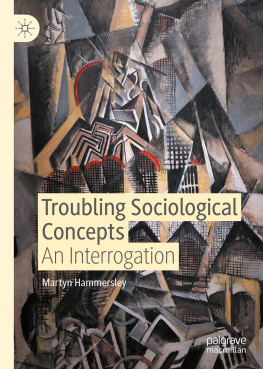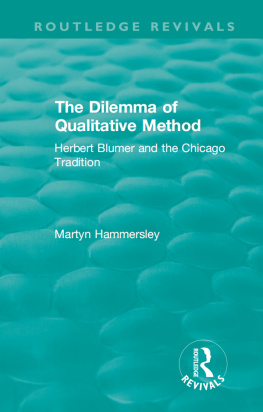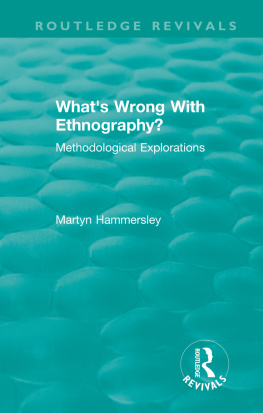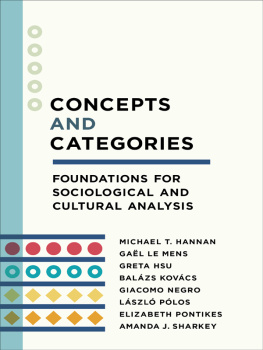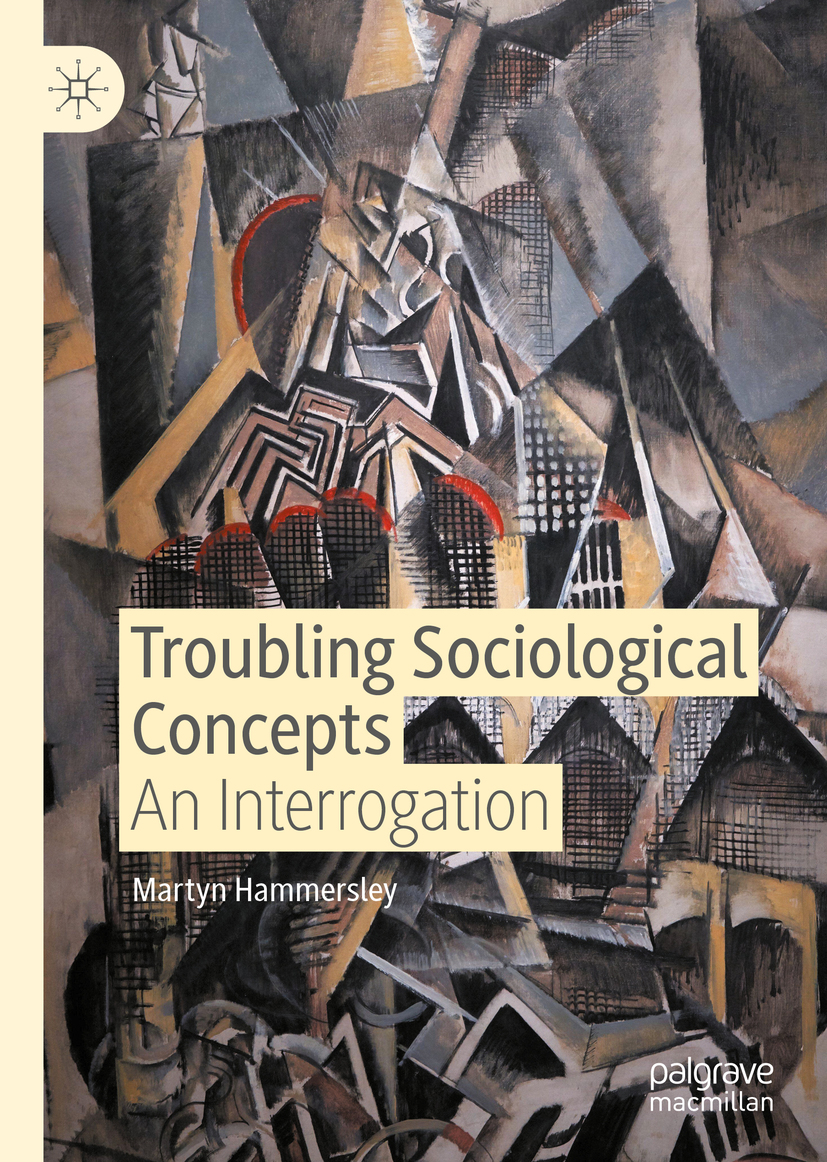Martyn Hammersley
Troubling Sociological Concepts
An Interrogation
1st ed. 2020
Martyn Hammersley
The Open University, Milton Keynes, UK
ISBN 978-3-030-51643-7 e-ISBN 978-3-030-51644-4
https://doi.org/10.1007/978-3-030-51644-4
The Editor(s) (if applicable) and The Author(s), under exclusive license to Springer Nature Switzerland AG 2020
This work is subject to copyright. All rights are solely and exclusively licensed by the Publisher, whether the whole or part of the material is concerned, specifically the rights of translation, reprinting, reuse of illustrations, recitation, broadcasting, reproduction on microfilms or in any other physical way, and transmission or information storage and retrieval, electronic adaptation, computer software, or by similar or dissimilar methodology now known or hereafter developed.
The use of general descriptive names, registered names, trademarks, service marks, etc. in this publication does not imply, even in the absence of a specific statement, that such names are exempt from the relevant protective laws and regulations and therefore free for general use.
The publisher, the authors and the editors are safe to assume that the advice and information in this book are believed to be true and accurate at the date of publication. Neither the publisher nor the authors or the editors give a warranty, expressed or implied, with respect to the material contained herein or for any errors or omissions that may have been made. The publisher remains neutral with regard to jurisdictional claims in published maps and institutional affiliations.
Cover credit (c) agefotostock / Alamy Stock Photo
This Palgrave Macmillan imprint is published by the registered company Springer Nature Switzerland AG.
The registered company address is: Gewerbestrasse 11, 6330 Cham, Switzerland
Written in the time of pandemic, this book is dedicated to all those I love, and to those who have lost their loved ones
The very first lesson that we have a right to demand that logic shall teach us is how to make our ideas clear; and a most important one it is, depreciated only by minds who stand in need of it.
Charles Sanders Peirce, How to Make Our Ideas Clear CP5: 393
Acknowledgement
Thanks go to Roger Gomm, for his friendship, assistance, and support over many years, and especially during the writing of this book.
Contents
The Author(s) 2020
M. Hammersley Troubling Sociological Concepts https://doi.org/10.1007/978-3-030-51644-4_1
1. Introduction
Martyn Hammersley
(1)
The Open University, Milton Keynes, UK
The most succinct rationale for this book is that, in an important sense, sociologists often do not know what they are talking about. This is because they give insufficient attention to the vague , and multiple, senses of key terms they employ, as well as to the serious conceptual problems these can involve. Any understanding of the world depends to a considerable extent on the concepts in which it is framed. A very long time ago , Max Weber (1904/).
The need for clarity should be obvious. If, for example, it is said that inequality is increasing, or racism is widespread, we need to know what is meant by inequality and by racism , as well as in what respect the one is increasing and the other is widespread. If these phrases are used as rallying cries, vagueness may not matter; indeed, it could be an advantage. However, for the purposes of sociological analysis it is essential to know what is being claimed rather more precisely. Distinctions are required to trace out potentially significant similarities and differences among the phenomena being investigated, ones that will enable us to understand and explain those phenomena better. Furthermore, without more clarity, any assessment of the truth of sociological claims is likely to be fruitless. Indeed, where there is disagreement in the interpretation of terms, the different sides of the argument will often talk past one another.
Many years ago, Sartori (: 2) remarked: there is a striking degree of obscurity and confusion over [the concept of social structure], a concept that is widely regarded as defining the sociological perspective. The situation is hardly better with terms derived from everyday usage. For example, work is the focus of a major subdiscipline of sociology, but it has multiple meanings, and the main sense of this term still adopted by sociologistspaid employmentexcludes similar activities that are outside the monetary economy, ones which may be of equal significance in many respects. Furthermore, the other senses of the termexpenditure of energy, actions whose satisfactions are entirely indirect, or that are undertaken as a result of constraintare often relied upon implicitly in sociological usage.
In this book I explore the meanings that have been given to several key terms that are widely employed in sociological explanations, and in social science more generally. These include ideology; culture; society; social class; sex and gender; ethnicity and race; power; values and interests. They by no means exhaust the corpus of sociological concepts, but the terms discussed have long been central to the discipline. I look at some of the history of each one, the competing senses given to it, and the problems these involve. I do not claim to have resolved the problems, but I do make proposals about how the terms can best be defined and used; as well as occasionally about how they should not be used. However, these can be no more than suggestions, since the problems involved here, like many others faced by social scientists, are not ones that are open to immediate solution. Instead, solutions have to be worked towards, collectively. Of course, one conclusion could be that some of these terms ought to be abandoned. For example , Jenkins (: 278) proposes abandoning power; and I reach a similar recommendation regarding ideology. However, there is no point in proposing that a term be abandoned unless we examine the meanings it has been given and the purposes these have served: only if it can be shown that it is not necessary for these purposes, or that the purposes fall outside the remit of sociology, can such a proposal be justified.
In my view, one of the most disabling problems facing sociology, at present, is that (for a variety of reasons) it does not operate as a collective enterprise aimed at resolving problems through careful thought and investigation, but rather to a large extent simply houses competing approaches, these often asserting supposedly definitive accounts about highly complex matters. The aim of this book is to prompt a more deliberative approach to the problems surrounding major terms that sociologists employ.
Some Assumptions and Principles
My approach to this task necessarily relies on assumptions, both about sociology and about the use of language, ones that may not be widely shared. In fact, it is almost inevitable, given the fundamental divisions that now prevail within the discipline, that these assumptions will be contentious. Some colleagues may deny that there are significant problems with sociological concepts, or that dealing with them is a priority. And, among those who recognise the problems, there are likely to be differences in view, both about what is wrong and about what needs to be done.

